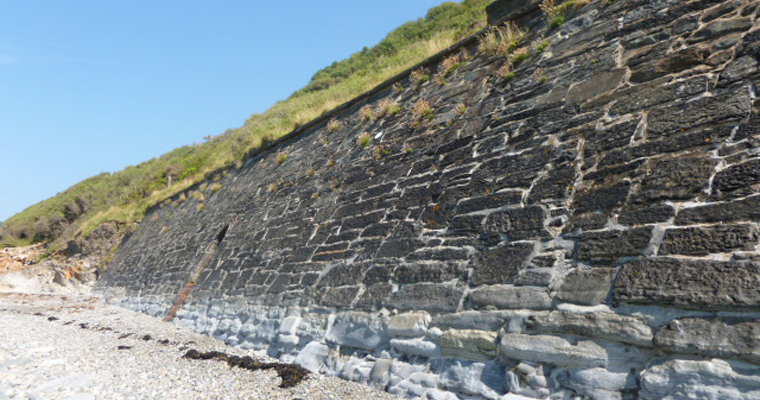Over 6,000kg of one of our repair mortars has been used to repair masonry walls in tidal areas along the Welsh coastline.
As part of major works to upgrade the railway network in Wales, Network Rail was seeking to provide scour protection to its most vulnerable structures. There are a number of locations along the Welsh coastline where the railtrack runs just above the beach and at some of these locations, the base of the cliff adjacent to the beach has been reinforced with masonry walls. Repair work was required to elongate the life of the structures and prevent further erosion of the riverbeds. It was important that any repair materials could be rapidly and easily applied in tidal areas subject to early immersion, so resistance to wash-out was crucial.
Marine Mortar S, a high performance cementitious repair mortar, was specified for this project due to its outstanding resistance to wash-out. Specifically designed for use in marine and tidal areas subject to early immersion, it cures rapidly to produce a high strength mortar with enhanced polymeric properties. Easily applied by trowel or pointing gun to either vertical or horizontal surfaces in thicknesses up to 50mm, it is supplied as a pre-packaged material so is simple to use on-site and only requires mixing with no extra additions of water or aggregate.
Backed by British Board of Agrément (BBA) approval, Marine Mortar S is non-toxic when cured so there are no environmental concerns when it is applied. There is zero threat of hazardous solvents being released into the sea and it can be safely applied in public areas. With low shrinkage, excellent low sag properties and a high bond strength, the physical properties of cured Marine Mortar S are similar to base concrete. It is also fibre reinforced which ensures enhanced tensile and impact strength and its dense matrix provides outstanding protection against the ingress of acid gases, moisture and chlorides. The main contractor for the works was Alun Griffiths (Contractors) Limited.


